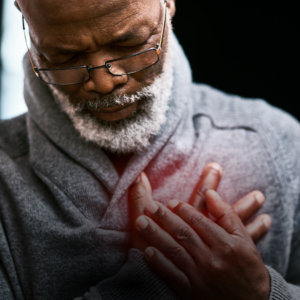In the fast-paced and demanding world we live in, it’s not uncommon for stress and anxiety to become constant companions. While it’s widely known that mental health can affect our emotions and thoughts, what’s often overlooked is the profound impact anxiety can have on our physical well-being. Let’s examine how anxiety manifests into physical ailments and why it’s crucial to seek help from mental health professionals if you are struggling.

Mental Health and The Mind-Body Connection
The mind and body are intricately connected, and disruptions in one can lead to disturbances in the other. Anxiety, a common mental health condition, can manifest in various physical symptoms that may be dismissed or misattributed. Understanding this mind-body connection is crucial in recognizing when anxiety is taking a toll on your physical health.
Common Physical Manifestations of Anxiety
Muscle Tension and Pain: Anxiety often leads to increased muscle tension, which can result in headaches, migraines, and generalized body pain. Persistent muscle tension can contribute to conditions like tension-type headaches and temporomandibular joint (TMJ) disorder.
Gastrointestinal Issues: The gut is often referred to as the “second brain” due to the strong connection between the two. Anxiety can cause or exacerbate digestive issues such as irritable bowel syndrome (IBS), indigestion, and nausea.
Cardiovascular Symptoms: Anxiety triggers the “fight or flight” response, leading to an increased heart rate and elevated blood pressure. Prolonged exposure to these heightened states can contribute to cardiovascular problems over time.
Respiratory Problems: Shallow breathing is a common response to anxiety. Over time, this can lead to respiratory issues like shortness of breath, hyperventilation, and even panic attacks.
Sleep Disturbances: Anxiety often disrupts sleep patterns, leading to insomnia or restless nights. Poor sleep, in turn, can exacerbate anxiety, creating a vicious cycle.
Getting Help from a Mental Health Professional
Recognizing the physical manifestations of anxiety is the first step towards seeking help. Many individuals may not connect their physical symptoms to mental health issues, leading to delayed or ineffective treatment. Here’s why talking to a mental health professional is crucial:
- Holisitic Approach: Mental health professionals can provide a holistic perspective, addressing both the mental and physical aspects of anxiety. This comprehensive approach is essential for effective management and recovery.
- Tailored Treatment Plans: Every individual’s experience with anxiety is unique. Mental health professionals can create personalized treatment plans that consider both the mental and physical symptoms, ensuring a more targeted and effective approach.
- Prevention of Complications: Untreated anxiety can lead to chronic health conditions and a diminished quality of life. Seeking help early can prevent the escalation of physical symptoms and associated complications.
- Validation and Support: Opening up to a mental health professional provides a safe space for individuals to express their concerns and feelings. This validation and support are crucial in breaking the stigma surrounding mental health and fostering a path towards healing.
Take care of your Mind and Body
Anxiety is more than just a mental health issue; it has tangible, physical effects that can significantly impact our overall well-being. Recognizing the connection between anxiety and physical ailments is the first step towards seeking help. Mental health professionals play a vital role in addressing both aspects, providing support, validation, and tailored treatment plans for a more comprehensive and effective recovery. Don’t let anxiety silently compromise your physical health; reach out for help and take the first step towards a healthier, balanced life.
